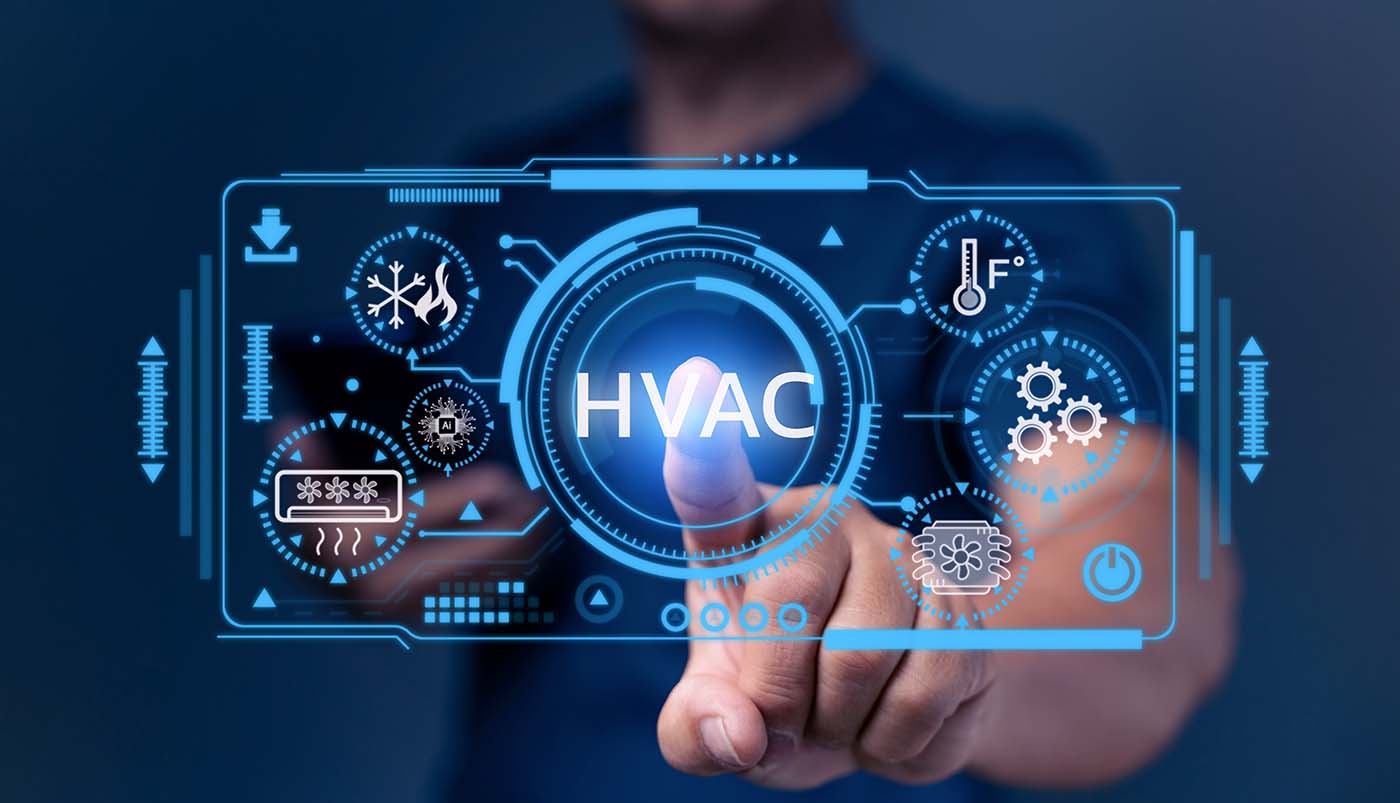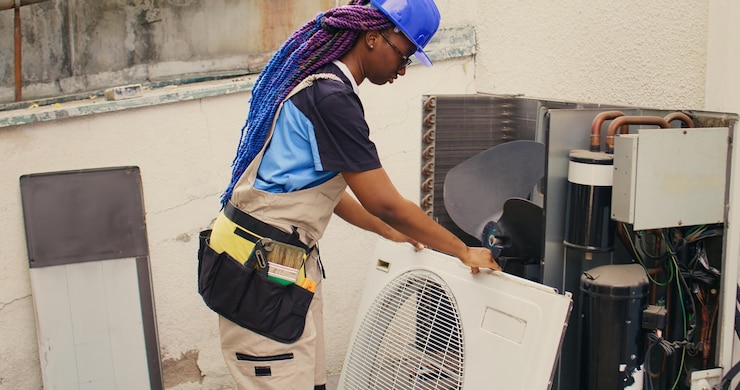In today’s rapidly evolving technology landscape, the integration of AI support in commercial HVAC systems represents a significant leap forward. The importance of commercial HVAC systems with AI support cannot be overstated, as they provide a revolutionary approach to managing indoor climate, enhancing energy efficiency, and ensuring optimal comfort for building occupants.
As we delve deeper into this topic, we’ll explore how AI is transforming traditional HVAC systems, making them smarter and more efficient. This transformation is not just about convenience; it is a crucial development in our quest for sustainable living and operational cost reduction.

Understanding Commercial HVAC Systems
Commercial HVAC systems serve a vital role in maintaining a comfortable indoor environment in large buildings, such as office spaces, shopping centers, and hospitals. These systems are designed to regulate temperature, humidity, and air quality, ensuring a pleasant atmosphere conducive to productivity and well-being.
The Role of AI in HVAC Systems
Artificial Intelligence brings numerous benefits to HVAC systems, offering capabilities that go beyond traditional methods. By integrating AI, these systems can now predict and respond to changes in the environment more efficiently. For example, AI algorithms can analyze data from various sensors to optimize heating and cooling processes dynamically.
AI’s ability to learn and adapt over time ensures that HVAC systems operate at peak efficiency. This not only reduces energy consumption but also extends the lifespan of the equipment, providing long-term savings for businesses.
Benefits of AI-Enhanced HVAC Systems
The advantages of incorporating AI into commercial HVAC systems are manifold:
Energy Efficiency
AI helps in monitoring and adjusting energy usage in real-time. By optimizing the operation of heating and cooling units, AI can significantly reduce energy consumption, leading to lower utility bills. This is especially important for large commercial buildings where energy costs can be substantial.
Predictive Maintenance
One of the key benefits of AI is its ability to predict potential equipment failures before they occur. By analyzing patterns and trends in the system’s performance, AI can alert maintenance teams of impending issues, allowing them to address problems proactively. This minimizes downtime and prevents costly repairs.
For more insights on how AI is used in HVAC diagnostics, you can visit AI in HVAC Diagnostics.
Improved Indoor Air Quality
AI systems can continuously monitor indoor air quality, adjusting ventilation and filtration processes as needed to ensure a healthy environment. This is particularly beneficial in commercial settings where air quality can directly impact employee health and productivity.
Learn more about how AI supports indoor air quality by visiting AI for Indoor Air Quality.
Implementing AI in Existing HVAC Systems
Integrating AI into existing HVAC systems involves several steps, including the installation of sensors and data collection devices, as well as the development of AI algorithms tailored to specific building needs. This process can be complex, but the long-term benefits in terms of efficiency and cost savings make it a worthwhile investment.
Challenges in AI Integration
While the benefits are clear, integrating AI into HVAC systems is not without challenges. Issues such as data privacy, the initial cost of implementation, and the need for ongoing maintenance and updates can pose hurdles. However, these challenges are often outweighed by the benefits, especially as technology continues to advance.
Case Studies: Successful AI Integration
Many organizations have successfully integrated AI into their HVAC systems, resulting in significant energy savings and improved building management. These case studies provide valuable insights and serve as a model for other businesses considering similar upgrades.
Future of AI in HVAC Systems
The future of commercial HVAC systems with AI support looks promising. As technology continues to evolve, we can expect even more sophisticated AI solutions that will further enhance system efficiency and performance. This evolution will likely lead to smarter buildings that are not only more comfortable but also more environmentally friendly.
For further reading on AI’s role in enhancing energy efficiency in HVAC systems, check out this external resource.
The Role of AI in Reducing Environmental Impact
By optimizing energy usage, AI-supported HVAC systems contribute to reducing a building’s carbon footprint. This aligns with global efforts to combat climate change and promote sustainable practices in commercial operations.
Conclusion
The integration of AI in commercial HVAC systems represents a significant advancement in building management. By enhancing efficiency, reducing costs, and improving indoor air quality, AI offers a comprehensive solution for modern climate control needs. As we look to the future, the continued development and adoption of AI technologies promise to revolutionize the way we approach building climate management.

FAQs
1. How does AI improve energy efficiency in HVAC systems?
AI optimizes energy usage by adjusting heating and cooling operations in real-time, reducing unnecessary energy consumption.
2. What are the initial costs of integrating AI into an HVAC system?
The initial costs can vary but are generally offset by long-term savings in energy bills and maintenance costs.
3. Can AI in HVAC systems improve indoor air quality?
Yes, AI can continuously monitor and adjust air quality parameters, ensuring a healthier indoor environment.
This article contains affiliate links. We may earn a commission at no extra cost to you.
